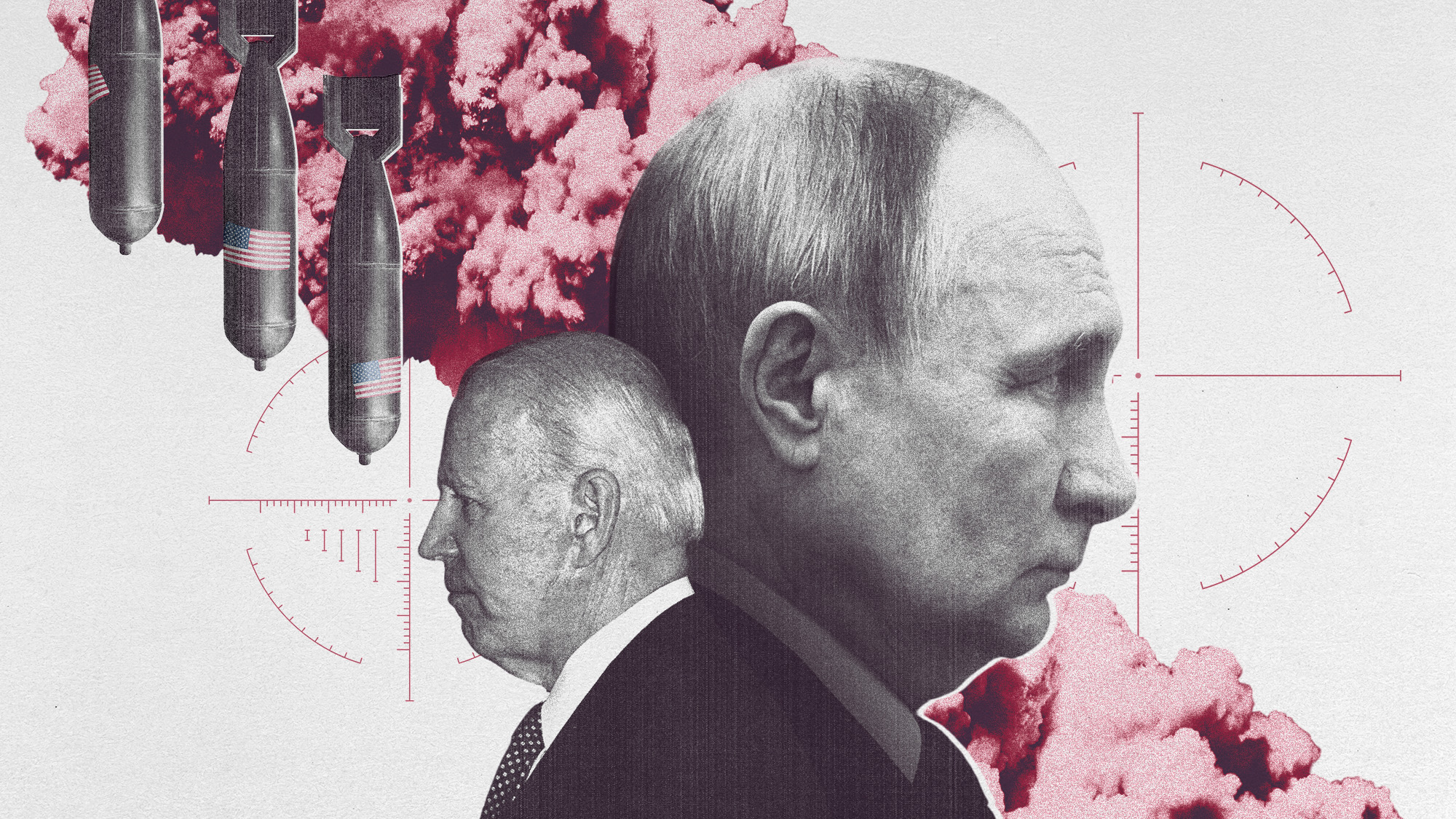Should US weapons be used against Russian targets?
Biden gives secret permission for strikes


A free daily email with the biggest news stories of the day – and the best features from TheWeek.com
You are now subscribed
Your newsletter sign-up was successful
A red line has been crossed. President Joe Biden "secretly gave Ukraine permission to strike inside Russia with U.S. weapons," Politico said. That's a dramatic change in policy after two years of war in which Biden has conspicuously attempted to balance Ukraine's defensive needs against the risks of escalating America's tensions with a nuclear-armed Russia. Until now, that meant no direct attacks on Russia with U.S.-made weapons. "Worsening conditions for Ukraine on the battlefield … led the president to change his mind."
The move means Washington is "abandoning a pillar of its strategy for the past two years," Foreign Policy said. It comes out of desperation. Ukraine's "strategic position is becoming progressively more perilous" — the defenders are losing ground and undermanned while Russia has been able to replenish its depleted invasion forces faster than anyone expected. Biden's decision may help Ukraine, but it means "accepting the potentially escalatory consequences that might follow."
What did the commentators say?
Russia has often "threatened escalation, an attack on NATO or the use of nuclear weapons" in response to Western aid to Ukraine, Adam Kinzinger and Ben Hodges said at CNN. But those threats have mostly proven hollow. "During the Cold War, nuclear threats were not uncommon, but the U.S. didn't keep them from advancing its foreign policy interests." Ukraine should be given more latitude to determine how to use American weapons to defend itself. "Time to call Putin's bluff."
The Week
Escape your echo chamber. Get the facts behind the news, plus analysis from multiple perspectives.

Sign up for The Week's Free Newsletters
From our morning news briefing to a weekly Good News Newsletter, get the best of The Week delivered directly to your inbox.
From our morning news briefing to a weekly Good News Newsletter, get the best of The Week delivered directly to your inbox.
It's understandable that American and European leaders want to do more to help Ukraine, Daryl G. Kimball said at Arms Control Today. But there's a risk that "escalation that could lead to a wider European war and potential nuclear catastrophe." That's why the international community should work to lower tensions and increase dialogue. "So far, the 79-year-old taboo against the use of nuclear weapons has held, but the world cannot take it for granted."
What next?
Russia isn't very happy with the latest news, naturally. Russian President Vladimir Putin warned that the West is "playing with fire" by allowing attacks on Russian soil, Reuters said. "Constant escalation can lead to serious consequences," he told reporters. Those consequences may already be playing out. Russia appears to be waging a "shadow war" against Ukraine's European allies, Hal Brands said at Bloomberg. Officials in Britain, Sweden and the Czech Republic — among other countries — say they believe Russia is behind acts of sabotage in their countries. "A conventional Russian assault on Europe seems unlikely," but that doesn't mean Putin won't try to inflict pain: "He has many unconventional means of seeking revenge."
Washington is still concerned that Kyiv might go too far. American officials registered alarm after Ukrainian forces launched drone strikes at Russia's nuclear early-warning radar systems, The Washington Post said. That raises the possibility that Putin will decide Ukrainian attacks are undermining his nuclear forces, which in turn "could hurt strategic stability between Washington and Moscow." American officials have also discouraged attacks on Russian refineries. The balancing act between Ukraine's defense and Washington's goals remains as tricky as ever.
A free daily email with the biggest news stories of the day – and the best features from TheWeek.com
Joel Mathis is a writer with 30 years of newspaper and online journalism experience. His work also regularly appears in National Geographic and The Kansas City Star. His awards include best online commentary at the Online News Association and (twice) at the City and Regional Magazine Association.
